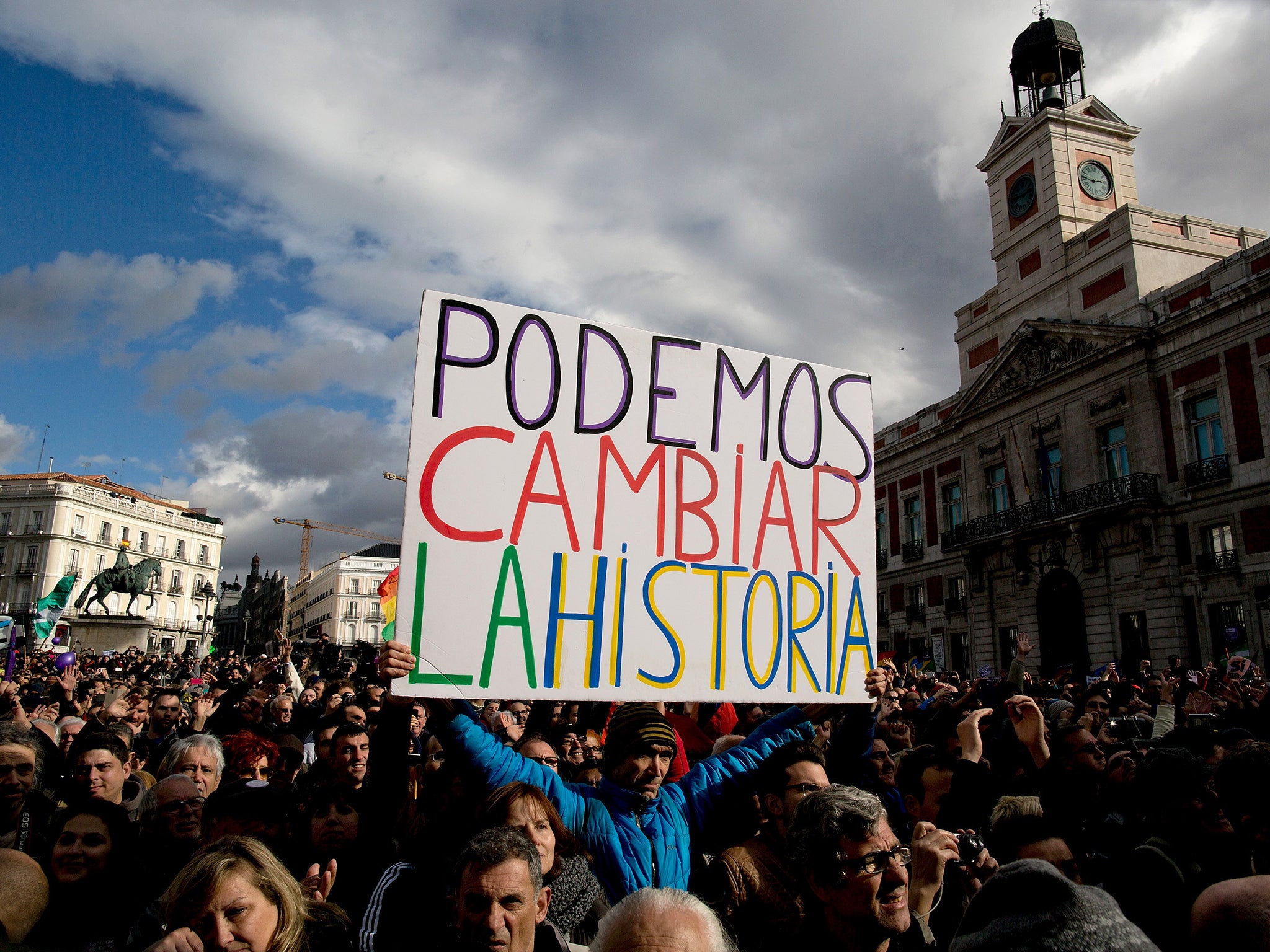Five things you need to know about the Spanish election results
As Spain enters into a new era of politics and executive control rests on shaky foundations, here is what we know so far from last night's results

Yesterday, Spanish politics entered a new age: the two party-system which has dominated the country for decades was shattered, giving birth to a multi-polar era of unclear consequences. The terms and conditions of government formation have been rewritten. In the past, short of outright majorities the right-wing Partido Popular (PP) and the centre-left PSOE (Socialists) would strike minor deals with Catalan and Basque nationalist forces. Now, executive stability stands on much shakier foundations.
1. PP resists in the bunker
The Spanish old right technically won the election. Not only was PP the most voted party (28 per cent of the vote) but it was also rewarded with a disproportionate amount of parliamentary representation (123 seats). However, having been rewarded with nigh-absolute power in 2011, yesterday’s was rather a bitter victory.
After four years of brutal austerity and an incessant stream of corruption scandals, last night’s results confirm PP has lost one third of its voters – and prospects are dark for the foreseeable future.
2. PSOE is weakened but not Pasokified yet
The party which has taken the biggest hit from the rise of new political forces has been PSOE, bleeding from all sides. Like Labour in Scotland, PSOE has struggled to reap good results in its traditional stronghold, Catalonia, due to its unclear stance on how to respond to the pro-independence sentiment that has swept the region in recent years.
But across the country, the party has never recovered from the 2010 betrayal of its left-of-centre base, when it took a U-turn in social policy and introduced harsh austerity measures in the midst of the Eurocrisis.
Struggling to outflank its attractive new rivals, PSOE has limited itself to the old-school strategy of demanding the tactical vote of the left. And it has paid dearly for such patronising strategy: 22 per cent of the vote and 90 seats.
3. Ciudadanos: the passive revolution on hold
Ciudadanos was born in Catalonia in 2006 to fight the surge in pro-independence sentiment, and until early in 2015 it was confined to the region. In recent months the party has staged a successful jump to the state-wide scene, buttressed by the support of a financial elite overwhelmed by the dazzling rise of Podemos in the polls.
A ‘Podemos of the right’, Ciudadanos has put forward a project of reform that ultimately remains friendly to the business interests which have underpinned the ills of the Spanish economy.
Its 40 seats (14 per cent of the vote) are insufficient to provide either PP or PSOE with a solid majority, making Ciudadanos irrelevant to the formation of government. Nevertheless, the party has succeeded in its onslaught against Podemos, which only a few months ago was single-handedly carving into the two-party system.
4. The rise of Podemos
In a night of bittersweet victories for everyone, Podemos’s 21 per cent of the vote was the sweetest.
Podemos have been forging alliances with left-wing nationalists and vowing to give visibility to Spain’s plurinational identities. The success of the new approach has been notable: in Catalonia Podemos and Colau’s En Comú movement have ranked first in polls, but also breathed down the neck of PP in two of its conservative strongholds, Valencia and Galicia.
5. Now what? Post-electoral combinations
Spain’s proportional representation system allows for multiple parliamentary alliances that could seize power. There are three likely outcomes:
PP goes into government with the parliamentary backing of Ciudadanos and/or PSOE, and attempts to rule the country with only 123 seats and the occasional legislative support of Ciudadanos.
PSOE goes into government with the parliamentary backing of Podemos and all other minor nationalist forces from Catalonia, Basque Country and the Canary Islands. However this would come with strong conditions attached, like the binding referendum of self-determination for Catalonia that Podemos supports. As a unionist force, PSOE is highly unlikely to fold to such a demand.
PP and PSOE form a German-style grand coalition. Backed by PSOE’s old guard, this would be the most stable choice, but it would inevitably destroy the party electorally and hand over unrivalled leadership of the left to Podemos (signalling PSOE’s Pasokification proper).
The orginal of this article was published by Novara Media
Join our commenting forum
Join thought-provoking conversations, follow other Independent readers and see their replies
Comments